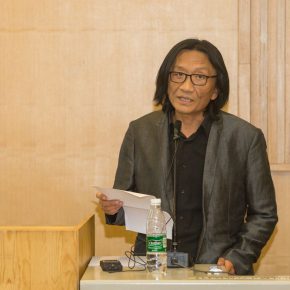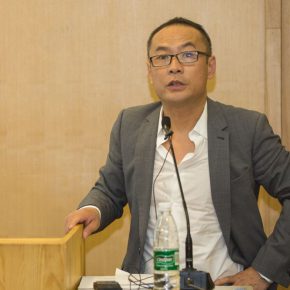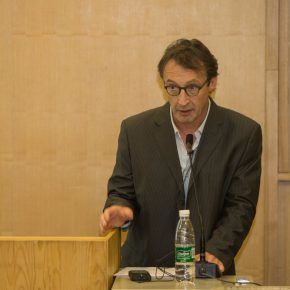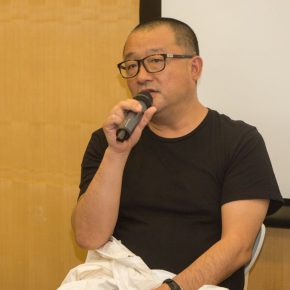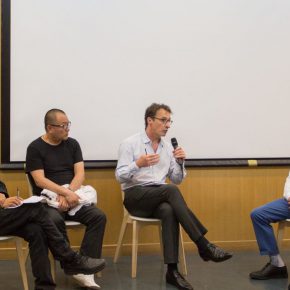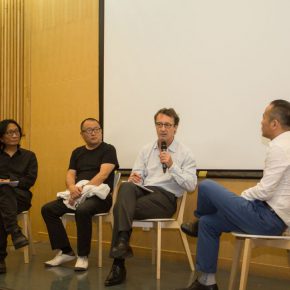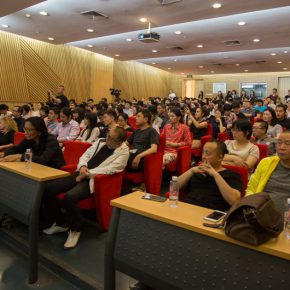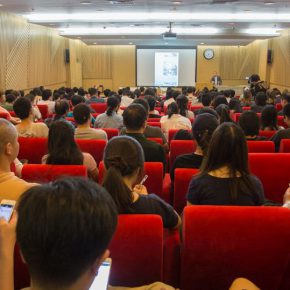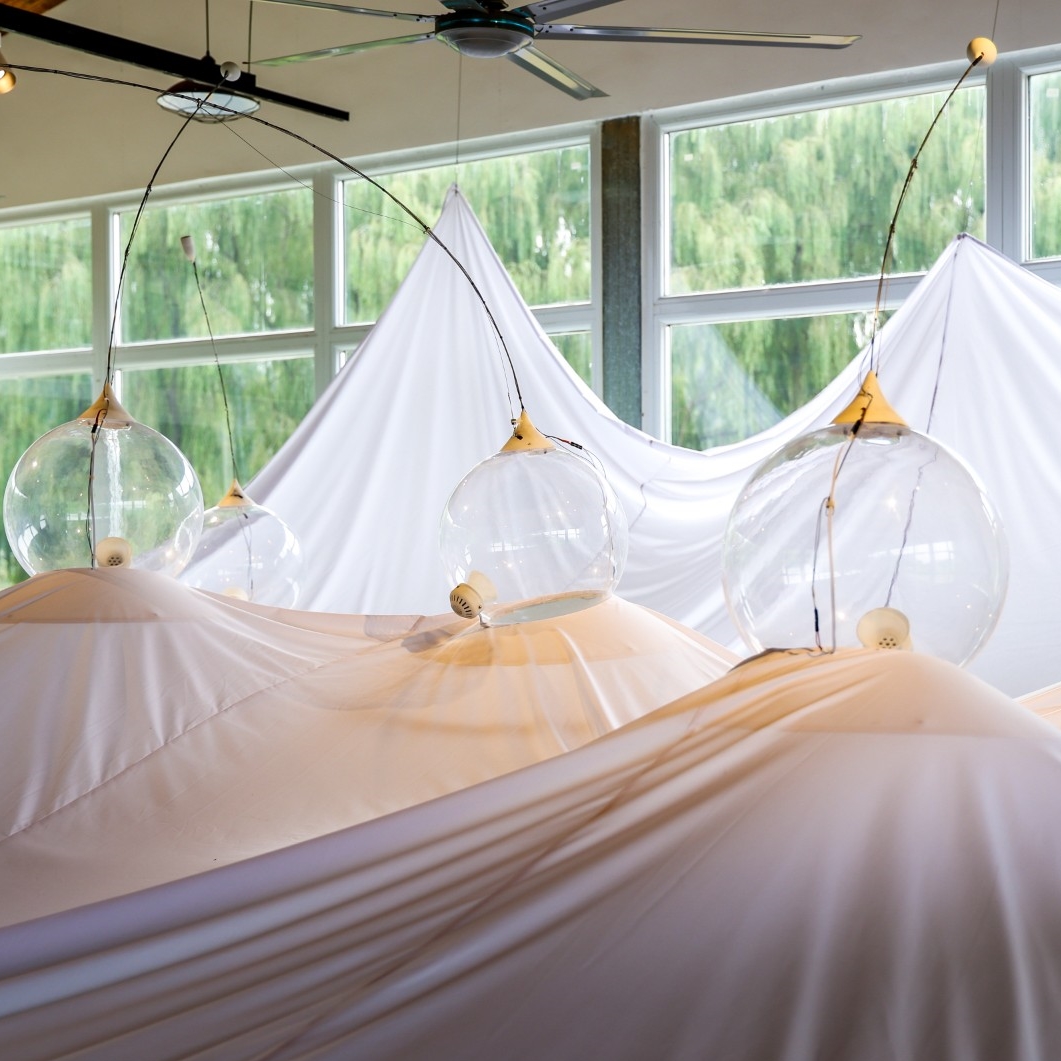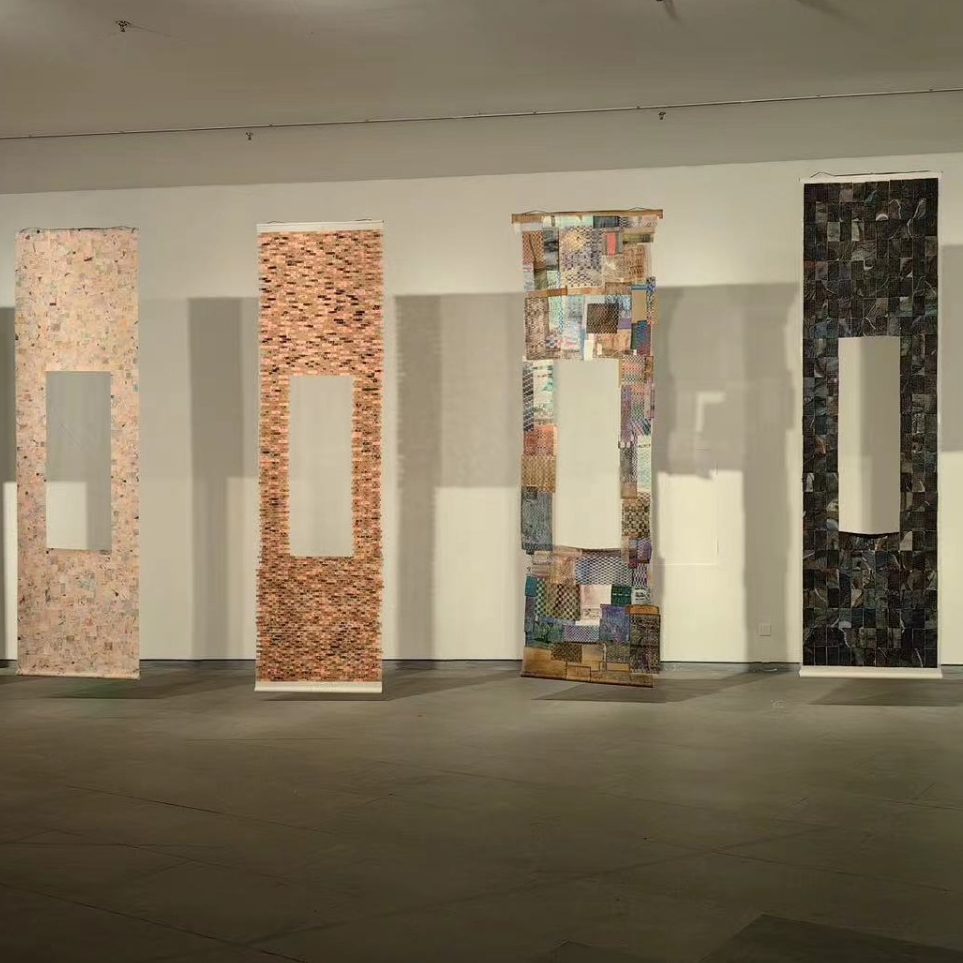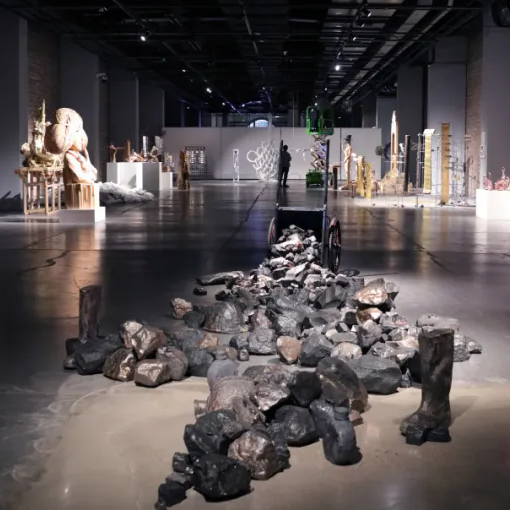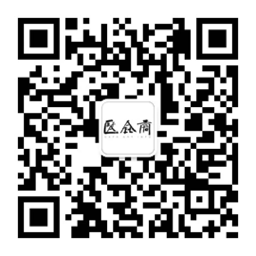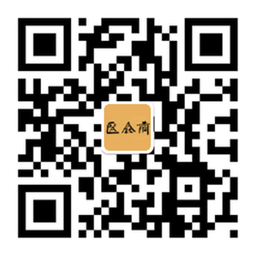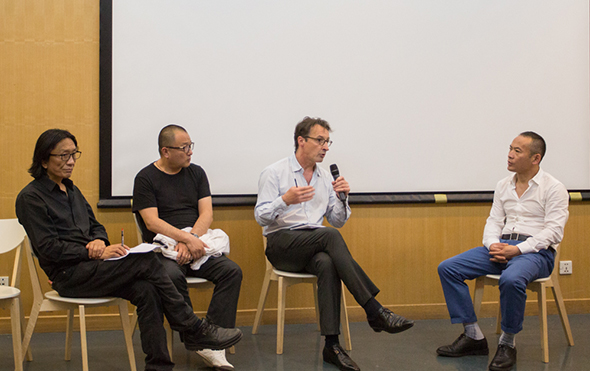
CAFA Center for Art and Technology (CAFA cat) was established in CAFA on May 10, 2017. On the occasion of the holding of “the 2017 Leonardo Art, Science and Technology Series Lecture”, there was a short ceremony of the establishment of the project and the guests invited included Prof. Su Xinping, Vice President of CAFA, the film director Wang Xiaoshuai, Philippe-Alain?Michaud, the film curator of the Centre Georges Pompidou in France who all participated in a symposium, combined with the “Expanded Cinema and Media Art” which is the theme of the lecture given by Philippe-Alain?Michaud with a discussion on the research and practice project. The symposium was hosted by Prof. Zhang Ga, Director of CAFA Center for Art and Technology.
The relationship between art and technology is an enduring topic, and each major historical technological innovation has brought changes in art and the concept of aesthetics. Prof. Su Xinping, Vice President of CAFA addressed the ceremony at the establishment of the center and said that, “Today, we are in an era of science & technology, art and culture are intersecting and developing. “How to develop a new path in the field where art and technology intersect has become an important mission at present. CAFA has become one of the world-wide first-class art institutes, and been committed to the research on the cutting-edge of art teaching and creation, so the CAFA Center for Art and Technology is born out of this context.
The establishment of the CAFA Center for Art and Technology aims at integrating the artistic humanities and the science & technology into collaborative research and development, and it is the interdisciplinary and cross-border innovative base that integrates the teaching, research and creation. The center hopes to promote the cutting-edge cultural development, considering the creation of digital media art as an opportunity, through the collaborative and cooperative research model of the artists, cultural scholars, scientists and technical workers at home and abroad. This will promote the germination of new ideas and new thinking, thus promote CAFA towards a new creativity in the convergence of artistic imagination and technological study.
At the same time, the center will also become the experimental base of new art teaching for CAFA, partly bearing the media art courses in the teaching of all faculties, setting up elective courses in media art or workshops, establishing the advanced training courses in media art that are considered as independent teaching projects of the center, to strengthen the subject teaching of CAFA, the use of research to promote the function of teaching and to promote the global communication and development of the teaching and practice in media art. The center will also work with the CAFA Art Museum to form a platform of international influences for the display and communication of new media art.
The center is composed of 4 functional parts, including the media technological research and development, the media cultural research, the media art display, and the media art teaching. The four parts also serve the related teaching departments and research of the academy. Media technological research considers the commissions by the artists as an opportunity to develop the facilities and technology corresponding to the research and experiments and form a systematic laboratory module on this basis. Media cultural research focuses on the new materialism-oriented social and cultural studies, which develops a new aesthetic theory and paradigm of art criticism under the conditions of a technical society, to establish an international academic platform on a theoretical level, focused on expanding the depth and boundaries of thought; and regularly holding art exhibitions and academic forums that trigger new trends in contemporary art, which are the specific forms of production and output of knowledge (in collaboration with CAFA Art Museum and other international art museums). The center has set up an academic committee to hold regular consultation sessions. The center will also be in cooperation with the top technical research and teaching institutions, art museums, foundations and related enterprises in the related fields at home and abroad to establish a comprehensive mechanism of research, teaching, display and support.
Text by the School of Experimental Art, CAFA, translated by Chen Peihua and edited by Sue/CAFA ART INFO
Photos by Hu Sichen/CAFA ART INFO
Academic Committee
Professor Fan Di’an, President of CAFA, China
Professor Su Xinping, Vice President of CAFA, China
Professor Liu Xiaodong, from CAFA, China
Professor Zhang Ga, from CAFA, China / USA
Professor Zhang Peili, Professor from the China Academy of Art, China
Peter Weibel, Chairman of ZKM | Center for the Art and Media, Germany
Marcella Lista, Chief Curator of the Centre Georges Pompidou, France
Professor George Legrady, from the University of California, Santa Barbara, USA
Professor Caroline A. Jones, from Massachusetts Institute of Technology, USA
Partners?
The Center and the following institutions have a cooperative intention (not ranked in a particular order)
MIT Media Lab, USA, MIT Program in Art, Culture and Technology, USA, Stanford?University?Center?for?Computer?Research in Music and Acoustics, USA, Berkeley University AUTOLAB, USA, UCSB Media Art and Technology Program, USA, University of Nottingham Mixed Media Lab, UK, University of South Australia SymbioticA, Australia, Arts@CERN, Switzerland, Hexagram, Canada, ZKM| Center for the Art and Media, Germany, Centre Georges Pompidou, France, Art+COM, Germany, Chronus Art Center (CAC), China
Project Support: New Century Art Foundation “Art and Technology” Special Program
Distinguished Prof. Zhang Ga serves as Director of CAFA Center for Art and Technology, Li Gang serves as Deputy Director, Wang Yuyang, Deputy Dean of the School of Experimental Art, concurrently serves as the deputy director.


